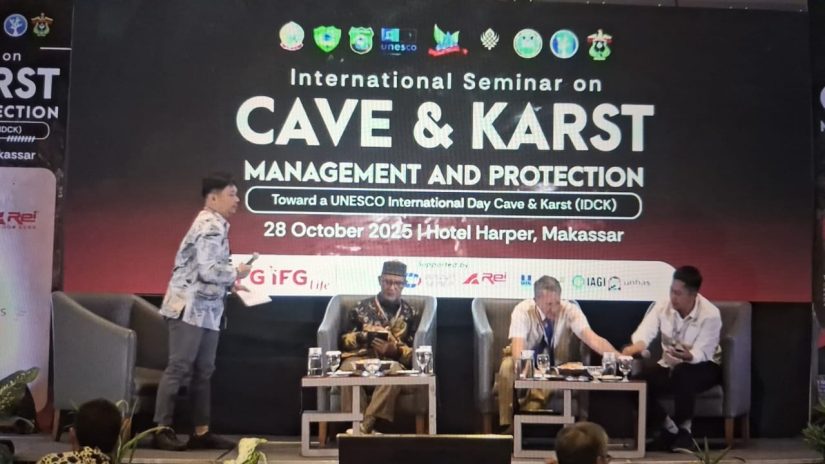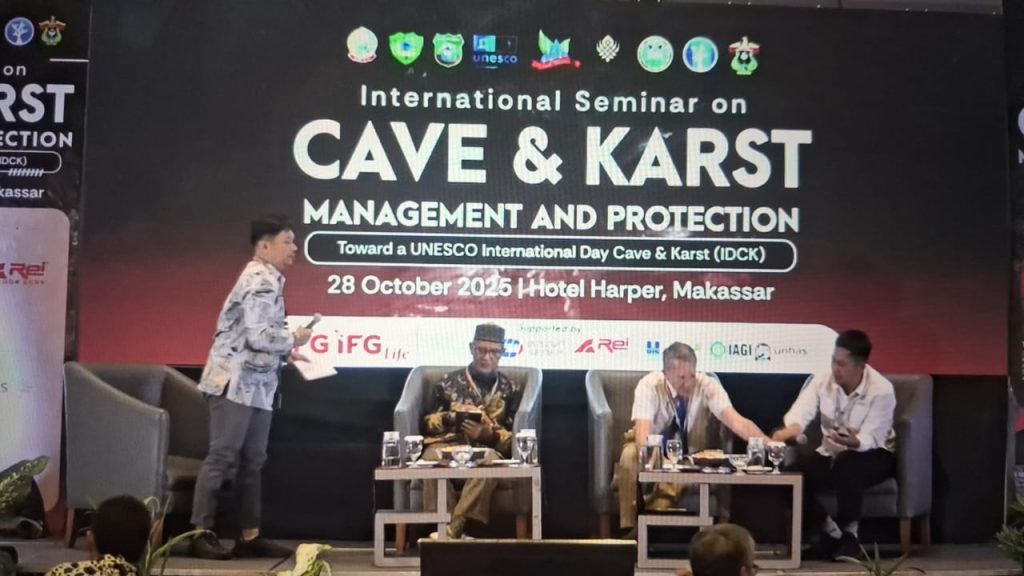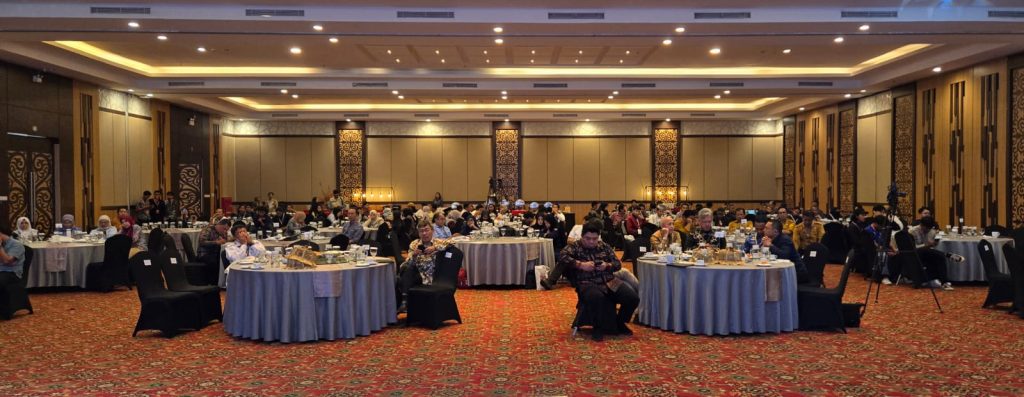
Makassar, 28 October 2025 — Prof. Dr. Eko Haryono, M.Si., a lecturer of the Environmental Science Study Program at Universitas Gadjah Mada, served as a speaker at the International Seminar on Cave & Karst Management and Protection organized by the UNESCO Global Geopark Maros–Pangkep in support of the proposal for the UNESCO International Day of Cave & Karst (IDCK). The event brought together experts from various countries to discuss the importance of sustainable karst area management.


(Activity Documentation)
In his presentation, Prof. Eko emphasized that karst landscapes play a vital role as sources of groundwater, habitats for endemic species, and components of geological heritage that are highly vulnerable to development pressures. He also explained that effective management of karst ecosystems requires a holistic approach that integrates environmental protection, scientific research, and community involvement. In this context, he highlighted the strong alignment between sustainable karst management and several Sustainable Development Goals (SDGs), particularly those related to clean water provision, climate change mitigation, terrestrial ecosystem protection, and the strengthening of global collaboration.
The conservation of karst landscapes has a direct and measurable connection to multiple SDGs. Efforts to protect karst aquifers significantly contribute to SDG 6 (Clean Water and Sanitation) by enhancing long-term water security. The preservation of karst forests and subterranean ecosystems also supports SDG 13 (Climate Action) due to their roles in carbon storage and climate resilience. Additionally, conserving karst biodiversity aligns with SDG 15 (Life on Land), as many endemic species are highly sensitive to environmental disturbances. International forums such as this further strengthen SDG 17 (Partnerships for the Goals) by promoting research collaboration and global networking in sustainable environmental governance.
Prof. Eko’s participation in this international forum reflects the commitment of UGM’s Environmental Science Study Program to advancing impactful environmental research, education, and advocacy. His involvement also demonstrates the program’s support for evidence-based policy and sustainable landscape management. Moreover, this participation enhances Indonesia’s presence in global discussions on karst conservation and reinforces the country’s role in international environmental collaboration. This event is expected to encourage greater public and stakeholder awareness of the urgency of preserving karst landscapes.
Author: Selamita
